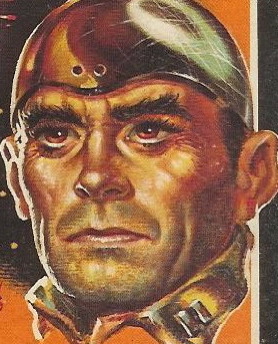Dick Armey, the House Republican majority leader when Bush took office (and no more a shrinking violet than DeLay), told me a story that captures the exquisite pettiness of most members of Congress and the arrogance that made Bush and Rove so inept at handling them. "For all the years he was president," Armey told me, "Bill Clinton and I had a little thing we'd do where every time I went to the White House, I would take the little name tag they give you and pass it to the president, who, without saying a word, would sign and date it. Bill Clinton and I didn't like each other. He said I was his least-favorite member of Congress. But he knew that when I left his office, the first schoolkid I came across would be given that card, and some kid who had come to Washington with his mama would go home with the president's autograph. I think Clinton thought it was a nice thing to do for some kid, and he was happy to do it." Armey said that when he went to his first meeting in the White House with President Bush, he explained the tradition with Clinton and asked the president if he would care to continue it. "Bush refused to sign the card. Rove, who was sitting across the table, said, 'It would probably wind up on eBay,'" Armey continued. "Do I give a damn? No. But can you imagine refusing a simple request like that with an insult? It's stupid. From the point of view of your own self-interest, it's stupid. I was from Texas, and I was the majority leader. If my expectations of civility and collegiality were disappointed, what do you think it was like for the rest of the congressmen they dealt with? The Bush White House was tone-deaf to the normal courtesies of the office."This just reminded me that political persuasion has come to mean far less to me than "civility and collegiality" in terms of whom I'm likely to vote for. If you can't be decent, then I don't care if you agree with me on every political issue. You'll never, ever get my vote. And I don't care if my not voting for you means we might have a President Romney. I just don't care anymore.
Fredericks, the Flapper, and the “Card Cad”
21 hours ago


4 comments:
I agree. Civility stands for a great deal-- it signifies rising above pettiness because one has a self-image that does not allow meanness, and it's a kind of self respect that leads to a greater respect of others. If civility is not learned by rote but is actually part of one's belief system, then it elevates the person above his or her baser instincts. This is why various cultures have put so much stock in it-- from the Europeans in the Middle Ages to the Japanese to the British aristocracy to Buddhist monks. It is at the heart of being "civilized". Why don't we discuss it more, and teach it to our children?
If one cannot be courteous towards a school child from one's own country, how can we expect him or her to put out the effort to understand cultural nuances and make decisions that affect the entire world?
Here, here! Or is it "Hear, hear"? "Hear, here"?
Shoot. And I was really enjoying this blog so far.
You should've stuck to your "no politics" rule.
Bye.
I'm with s. Weasel -- outahere.
Go Romney -- a civil man if there ever was one.
Post a Comment